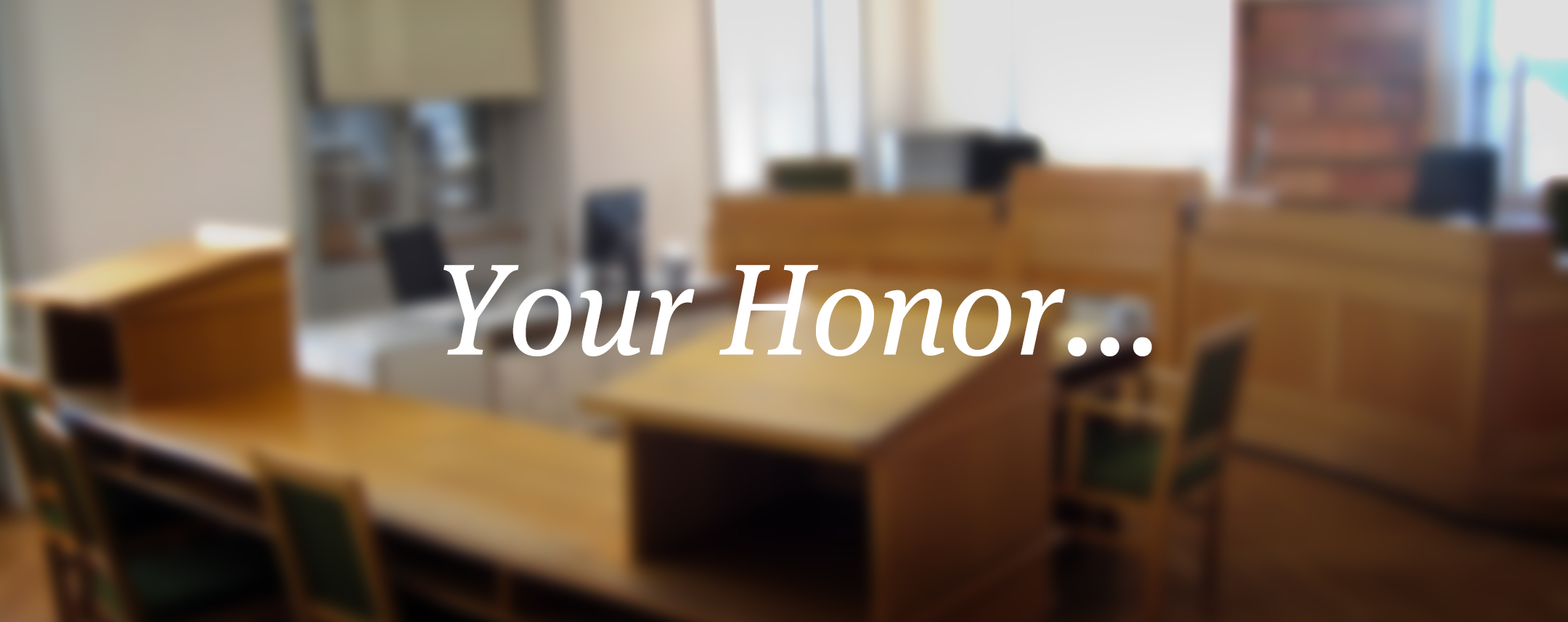Last week, I traveled from Olympia to Port Angeles to watch as a Clallam County judge heard arguments in a lawsuit over the city of Sequim’s decision in October to deny a pair of legally submitted citizen initiatives a spot on the November ballot.
I’m not a lawyer, only a concerned layman who can’t understand when the public’s rights are trampled by the very politicians we elect to protect them. Consequently, it seems to me the issues at stake in the case are as simple as can be.
Thank goodness no one asked me to deliver the closing argument for the Sequim residents forced to sue their own city council in hopes of forcing it to follow the law and put the initiatives on the ballot so the voters can decide. But if I had, this is what I’d have said:
Your honor, I’d like to start off by thanking you for listening patiently and attentively to the complicated arguments being offered by both sides in this case. And with all due respect, I contend that the very fact we’re here today taking this action—as we absolutely should—demonstrates my client has already met and exceeded the only real standard necessary to prevail.
Quite simply, the other side’s case distills down to nothing more than the assertion that the ballot measures in question—both of them—are “clearly illegal.” That’s a phrase they’ve used numerous times in their presentation—”clearly illegal”—because, unless it’s true, their whole argument collapses.
As has been amply demonstrated, the city has the discretion within certain limits to use a pre-election challenge to block ballot measures. But state law says that should be done only in the most extreme cases.
It also says a pre-election challenge should be based on the ruling of an actual judge, not the opinion of a city attorney working in concert with partisan politicians. But the more important stipulation is that pre-election challenges should be mounted very, very rarely—and then only in cases where no reasonable person could disagree over whether the measure violated the law or the constitution.
Your honor, I submit that if the legality and constitutionality of these measures were, in fact, as cut and dried as all that, we wouldn’t be here before you today. We couldn’t have argued back and forth for several hours over two different court dates. We couldn’t have made numerous motions and submitted hundreds of pages of documentation to support our respective positions.
Nor would it be necessary for you to listen and read, and then take the case under advisement for days or weeks before issuing a ruling—as you’ve said you will do.
If these measures were “clearly illegal,” it wouldn’t be necessary to waste your time or the taxpayers’ money debating them because you’d have realized it the moment you glanced at them and dismissed our whole case.
But you didn’t. Nor should you have.
You recognized the issues at stake were as complicated as they were consequential, and you concluded—wisely—they were worthy of due process. Thus, by their very definition, the initiatives were not “clearly illegal,” and the city abused its pre-election challenge authority by exercising it in an inappropriate case.
The city and the union have tried desperately during these proceedings to persuade you the initiatives do, in fact, violate the law. Their hope is that, if you agree, it somehow validates their decision to keep them off the ballot.
But there’s no reason for this court to venture down that road, and considerable risk of setting a dangerous precedent if it does. If your honor sends the measures to the voters, as we ask, there’s no reason to believe they won’t be defeated. After all, if they’re as unwise as the opponents claim, how on earth would anyone vote for them?
Conversely, though, if you decide to consider the merits of the initiatives before the voters have even had a crack at them, you empower other city councils to try the same tactic, hoping to derail measures they don’t like by litigating them out of existence in utero.
At that point, the right of citizen initiative would be rendered meaningless.
The dispute today needn’t concern the arcane details of the initiatives. It should be about whether the city council—acting on nothing but the advice of its own attorney—was justified in preemptively denying the voters their say on a legally qualified ballot measure.
And the only factor you need to consider in making that determination is whether the initiatives were “clearly illegal” in the first place.
They weren’t, or we couldn’t have spent all this time arguing about it.
The measures should be included on the city’s next available ballot. If they fail, the controversy goes away all by itself. If they win, there will still be an opportunity at that point for critics to file their own post-election challenge.
Either way, the benefit of the doubt should go to the voters and the burden of proof should be on critics of the measures, not the volunteer supporters who’ve worked tirelessly and already fulfilled every legal requirement the laws sets forth to qualify an initiative for the ballot.












